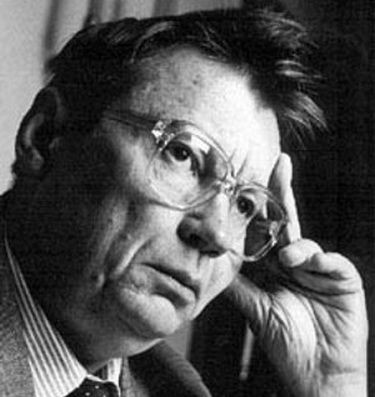
Boris Alexandrovich Tchaikovsky
1925 - 1996
- Born in Moscow in 1925, the son of a medical doctor and an economic geographer
- Tchaikovsky was initially a pupil at the Gnessin Moscow Music School
- from 1943 studied at the Moscow Conservatory with Vissarion Shebalin, Nikolai Myaskovsky and Dmitri Shostakovich (composition) and Lev Oborin (piano)
- Breakthrough in the 1960s and 1970s
- In 1949, Tchaikovsky took up a position as an editor in the music department of the All-Union Broadcasting Corporation
- worked as a freelance composer from 1952
- wrote around four dozen cinema and television film scores as well as theatre and radio play music
- from 1968 to 1973, at his own request, honorary First Secretary of the Composers' Association of the Russian Federation
- In 1969, Tchaikovsky was honoured with the USSR State Prize for the Symphony No.2
- Mstislav Rostropovich said that he considered Boris Tchaikovsky to be a genius and that he was convinced ‘that at some point people will realise that there are two great composers with the same name.’
- 1985 Appointed People's Artist of the USSR
- 1989 to 1996 Professor of Composition at the Russian Academy of Music
- writes music full of urgency and complex structure, which in its liveliness and richness of contrast is also suitable for scenic genres (theatre, radio plays, etc.)
- was not one of those composers after Shostakovich who were particularly supported by the party because of his critical stance
- Boris Tchaikovsky's music was increasingly recognised posthumously, and a number of recordings have been made since the turn of the millennium
- Death on 7 February 1996 in Moscow
[Please also visit the website of the Boris Tchaikovsky Society at] (http://www.boris-tchaikovsky.com/english.htm)
Boris Tchaikovsky's works published by Boosey & Hawkes / Sikorski:
Piano Quintet (1962)
Sinfonietta for string orchestra (1953)
Chamber Symphony (1971)
